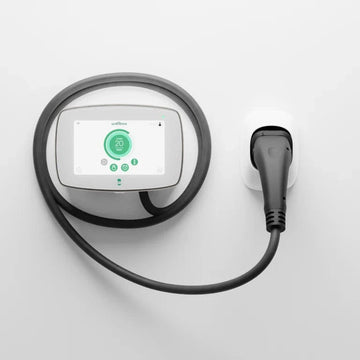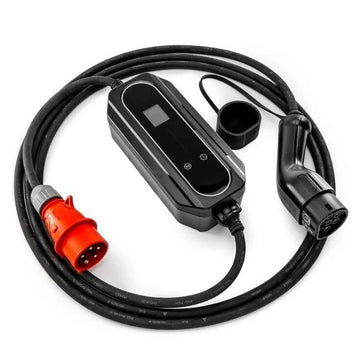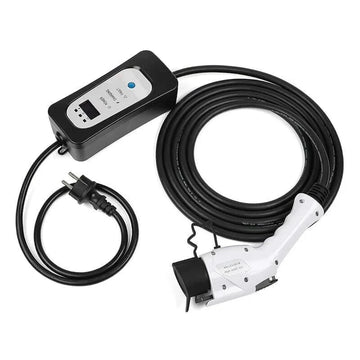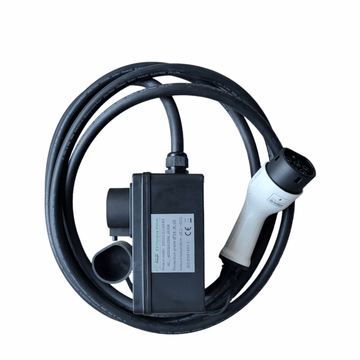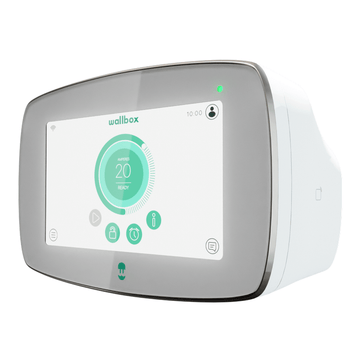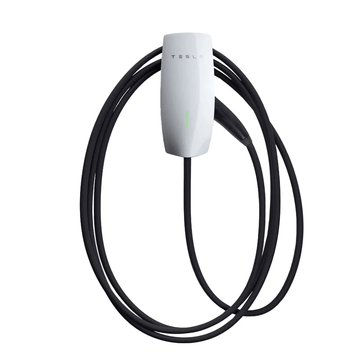Electric car batteries are rechargeable battery packs used to power electric vehicles (EVs). These batteries store energy that powers electric motors, replacing the internal combustion engines found in conventional vehicles like petrol and diesel cars.
Most electric car batteries last between 8 and 15 years or roughly 100 000 to 200 000 miles, depending on usage, climate, charging habits and battery technology. Thanks to sophisticated battery management systems and improvements in battery health monitoring, battery electric vehicles are becoming more reliable. Though batteries degrade over time, most EV batteries retain over 70–80% of their original capacity even after years of use. Battery warranties typically cover 8 years or 100,000 miles, so you can have peace of mind.

How Long Do EV Batteries Last?
On average, EV battery packs are designed to make at least 8–10 years under normal driving conditions. However, real-world data shows many electric car batteries last 12 to 15 years, especially in mild climates and with proper care. Battery lifespan is often measured in charge cycles. Most EV batteries are rated for between 1,000 and 2,000 so-called charge cycles. This means they can last over a decade with typical daily driving before any significant battery degradation affects performance.

How to Know Your Electric Car's Range?
Electric vehicle battery range is affected by these things:
- Battery capacity (measured in kWh)
- Efficiency of the electric motors
- Driving habits (acceleration, braking)
- Use of heating or air conditioning
- Road conditions and terrain
- Weather (extreme temperatures affect battery performance)
Most electric cars display estimated remaining range on their dashboards based on real-time usage and battery charge. EV drivers can also use apps from EV manufacturers or third-party platforms to track battery performance and expected range.
What Factors Accelerate Battery Wear?

You may be thinking, are there any factors that make the batteries last shorter? Ans the answer is yes, there's actually a few factors that make the batteries wear off faster. Let's look into it.
Extreme Temperatures
Hot and cold weather can be really tough on electric car batteries. If it’s super hot, the battery wears out faster because of all the heat. And if it’s really cold, the battery doesn’t work as well and the car can’t go as far. Most modern electric cars have cooling system to help with this, but it still helps to park in the shade or inside a garage when you can.
Rapid Charging or Charging Too Often
Using DC fast chargers all the time might seem super convenient, but it can actually make your battery wear out quicker. Fast charging heats up the battery more than normal, which isn’t great in the long run. It’s better to use a regular home charger for everyday charging. If you want one, check out EV home chargers or wall chargers as they’re better for the battery.
Keeping the Battery Too Full or Too Empty
Letting your battery sit at 100% or completely empty for a long time isn’t good. A full battery gets stressed, and an empty one can even get damaged. Most EVs do best when the battery stays between 20% and 80%. And if you’re not driving for a while, try to keep it at about 50%.
Driving Like You’re in a Race
If you’re always hitting the gas hard and braking suddenly, your battery is going to wear out faster. Fast driving uses more power and makes the battery heat up more. Driving smoothly and using the car’s regenerative braking (which helps charge the battery when you slow down) is way better for battery life.
Older Cars Without Good Battery Management
Some older electric cars don’t have the best systems to take care of the battery. Newer ones are smarter—they can balance the battery cells and keep things running smoothly. If you’re driving an older EV, just be a little extra careful about how you charge and drive.
Leaving Your Car Sitting Too Long
If you don’t drive your EV for weeks and the battery is either full or almost empty, that can actually cause it to lose capacity. It’s kinda like when you leave your phone off for a long time and the battery feels weaker. The best thing to do is leave it around 50% and maybe plug it into a charger that keeps it steady.
Bad Charging Equipment
Using cheap or wrong charging cables can mess with your battery. If the power doesn’t flow correctly, it can cause overheating or other problems. That’s why it’s important to use good equipment liketype 2 charging cables,type 1 to type 2 adapters, or even Tesla charging cables.
How Much Battery Capacity Loss Should I Expect Per Year?
EV battery degradation is inevitable but, honestly, usually slow. Most electric vehicles get around 2–3% battery capacity loss per year under normal usage. For example, after 5 years, a car battery might retain about 85–90% of its original capacity. However, actual battery degradation varies based on your driving style, charging habits, battery technology, and climate.
EVs with sophisticated battery management systems, like those found in Tesla or Hyundai models, often degrade even slower due to better thermal and charge control.
Why Does an Electric Car Battery Lose Charge?
Electric car batteries lose charge because of those aspects:
- Battery degradation from charge cycles over time
- Parasitic losses from onboard systems even when the car is parked
- Extreme temperatures, which impact chemical reactions inside lithium ion batteries
- High discharge rates during rapid acceleration
- Aging of battery materials, including the formation of resistance within the battery pack
Like a lithium ion phone battery, an EV battery’s ability to hold charge declines gradually.
How Can I Extend Battery Life?

So the important question naturally comes - how can I extend EV battery life? You can maximize battery lifespan by doing these things:
- Avoid full charges or deep discharges and keep charge between 20–80%
- Use slower AC charging when possible
- Minimize frequent DC rapid charging
- Protect battery health by parking in the shade or garages to avoid extreme heat
- Use liquid cooling systems if available
- Schedule charging to finish near the time of driving
- Use regenerative braking to reduce energy waste
- Install 22kW home chargers to support consistent and balanced charging
Regular software updates from your EV manufacturer may also improve battery longevity and charging algorithms.
How Long Does an Electric Car Battery Life Last Before Recharging?
When an electric car battery is fully charged, it can usually go somewhere between 150 and 400 miles. How far it actually goes while you’re driving really depends on a few things, like how fast you're going, if you’re driving up hills, what the weather is like, and if you're using stuff like the heater or radio. For example, if you're driving really fast on the highway, the battery runs out quicker. But if you're just driving around town and using things like regenerative braking, the battery lasts longer.
An efficient EV might last 4–6 hours on the road before needing a recharge, while high-performance models with larger battery packs can go longer. Always carry appropriate type 2 charging cables to stay charged on long trips.
What Happens to the Batteries at End of Life? Can You Recycle Electric Car Batteries?
Sometimes our customers wonder, can electric car batteries be recycled?
When electric car batteries reach the end of their EV life (usually 70–80% capacity), they don’t go to the landfill. Instead, repurposed batteries can be used for stationary storage, some are reused in backup power systems and many are recycled to extract valuable materials like lithium, cobalt and nickel.
Recycling electric car batteries reduces environmental impact and supports a sustainable battery supply chain. Several programs and companies are working to recycle electric car batteries and repurpose them for second-life uses.
Replacing an Electric Car Battery
Most of the time, you don’t need to replace an electric car battery, but sometimes it happens if the battery gets really damaged or stops working well. Replacing it can be pretty expensive—it can cost anywhere from around 4,000€ to more than 15,000€, depending on the car and how big the battery is.
Some car companies give you extra-long warranties, so you might not have to pay if something goes wrong. The good news is that prices are going down because battery technology is getting better. There are also used EV batteries you can buy, which are cheaper, but they might not work as well as brand-new ones.
How Many Charge Cycles Does an EV Battery Go Through?
Most EV batteries can handle 1,000 to 2,000 charge cycles during their lifespan. A charge cycle is counted as one full 0–100% discharge and recharge, though partial charges count proportionally.
Let's say, two 50% charges equal one full charge cycle. So, if you drive 200 miles per full charge, 1000 charge cycles could give you 200 000 miles of driving.
What Are Battery Warranties?
EV manufacturers offer warranties that typically cover 8 years or 100,000 miles (whichever of those comes first), minimum battery capacity retention (usually around 70%) and coverage for battery faults or significant capacity loss.
This means that if your electric car battery wears out sooner than it should, the warranty can help cover the cost. It’s a good idea to check what your warranty includes, because some of them also cover things like the battery’s software, cooling system, and the system that helps manage the battery.
To keep your electric car in top shape, always charge with high-quality equipment. Explore options like type 1 charging cables, type 1 to type 2 adapters, or type 1 to type 2 charging cables for compatibility. Learn more about how to install EV chargers and the cost of installation to ensure safe, efficient home charging.







